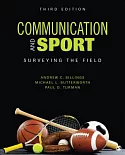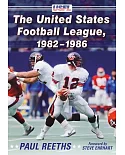This superb guide at last brings the work of Filippo Coarelli, one of the most widely published and best known scholars of Roman archeology and art, to a wide, English-language audience.
Conveniently organized by walking tours and illustrated throughout with clear maps, drawings, and plans, Rome and Environs: Archaeological Guide covers all of the city's ancient sites,
and, unlike most other guides, now includes the major monuments in a large area outside Rome proper but within easy reach, such as Ostia Antica, Palestrina, Tivoli, and the many areas of
interest along the ancient Roman roads. An essential resource for tourists interested in a deeper understanding of Rome's classical remains, it is also the ideal book for students and scholars
approaching the ancient history of one of the world's most fascinating cities.
� Covers all the major sites including the Capitoline, the Roman Forum and the Imperial Fora, the Palatine Hill, the Valley of the Colosseum, the Esquiline, the Caelian, the Quirinal, and the
Campus Martius.
� Two separate chapters discuss important clusters of sites-one on the area surrounding Circus Maximus and the other in the vicinity of the Trastevere, including the Aventine and the
Vatican.
� Additional chapters cover the city walls and the aqueducts.
� Features 189 maps, drawings, and diagrams; an appendix on building materials and techniques; and an extensive bibliography. This superb guide at last brings the work of Filippo Coarelli, one
of the most widely published and best known scholars of Roman archeology and art, to a wide, English-language audience. Conveniently organized by walking tours and illustrated throughout with
clear maps, drawings, and plans, Rome and Environs: Archaeological Guide covers all of the city's ancient sites, and, unlike most other guides, now includes the major monuments in a
large area outside Rome proper but within easy reach, such as Ostia Antica, Palestrina, Tivoli, and the many areas of interest along the ancient Roman roads. An essential resource for tourists
interested in a deeper understanding of Rome's classical remains, it is also the ideal book for students and scholars approaching the ancient history of one of the world's most fascinating
cities.
� Covers all the major sites including the Capitoline, the Roman Forum and the Imperial Fora, the Palatine Hill, the Valley of the Colosseum, the Esquiline, the Caelian, the Quirinal, and the
Campus Martius.
� Two separate chapters discuss important clusters of sites-one on the area surrounding Circus Maximus and the other in the vicinity of the Trastevere, including the Aventine and the
Vatican.
� Additional chapters cover the city walls and the aqueducts.
� Features 189 maps, drawings, and diagrams; an appendix on building materials and techniques; and an extensive bibliography.





















